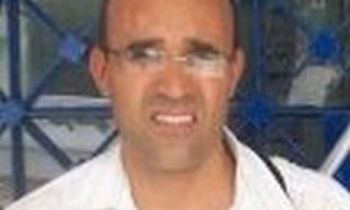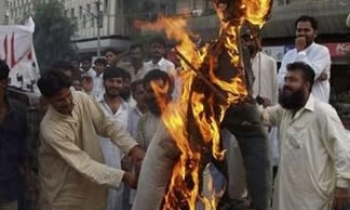There are anniversaries sure to bring complaints from readers if the newspaper doesn't show deference with some coverage: Pearl Harbor Day, VE Day, D-Day and many others.
The voices on the phone line, shaking with anger if they don't see the coverage they expected, often sound elderly. When the pivotal events that altered their lives are missed or downplayed by the newspaper, it's personal.
I've been thinking about those readers as the fifth anniversary of the attacks on the World Trade Center and the Pentagon draws near. The newspaper has put a lot of thought into the anniversary coverage. I can't help but wonder when the major news events of the baby boom generation will begin to slide from this front-page consciousness into history. When do we stop marking the five-year intervals?
I've also been thinking about the perspective time can provide, how looking back can reveal something impossible to see in the heat of unfolding events.
"It's not whether to cover anniversaries, but how to do it with substance and meaning," said editor Anders Gyllenhaal. On the one-year anniversary of the Red Lake school shootings, he said, "we didn't say it happened a year ago, but what has happened since then. I sense readers have a thirst for that kind of coverage."
Newspapers haven't always approached anniversary coverage this way. A check of the archives by Bob Jansen, assistant director of news research, showed the front page of the Minneapolis Tribune (an earlier incarnation of this newspaper) didn't mark the five-year anniversaries of the Battle of Gettysburg, the sinking of the Titanic or the attack on Pearl Harbor.
So why has anniversary coverage become a staple of journalism in the past few decades, not just appreciated but demanded by readers? Is it to honor, as those angry readers suggest? To assess progress in recovery? To remind us of our shared history? Is the newspaper the best place to do that?
"Newspapers have probably filled a void in that way. If another public venue isn't open and doesn't do it, the newspapers can and they have," said Kate Roberts, an exhibit developer at the Minnesota Historical Society. After all, she said, friends change and people move to new communities. "The newspaper is one of the few constants in your life that you go back to. The newspaper has been there all along," Roberts said.
Perspective gained over time can make historic events look very different, she said. It's one of the reasons that what Minnesota used to call the Sioux Uprising of 1862 is now referred to as the U.S.-Dakota Conflict or War. "It's still an emotional moment for many people," Roberts said. "But in recent years there have been some attempts at reconciliation, turning from marking the event to healing, forgiving and reconciling."
Getting to that point took Minnesota more than 140 years. Just how long it takes for our perspective on history to change substantially "depends on how personally we were touched," Roberts said. "With Sept. 11, for some people five years will be enough, but for many it will take much longer. It's not unlike the way we deal with anniversaries of a loved one's death."
I'm far better informed today than I was in 2001 about the complicated tensions in some countries with large Muslim populations and about the mentality of the radical Islamists who attacked New York and Washington five years ago.
I've read reams of newspaper copy about Sept. 11, waded through the 9/11 Commission report and visited Ground Zero. But I have to admit, I still can't get my brain around the human toll. I wonder about the children of all those people who didn't come home from the World Trade Center that day. How old will they be before they begin to share their stories with the world?
Some of the World War II veterans have only recently begun sharing their painful memories, adding a fascinating and touching fresh layer of meaning to a 60-year-old news story.
Gyllenhaal sees the Sept. 11 attacks as "a seismic event. There's more interest by readers to go back and think, ponder and commemorate. It's one of the most powerful events of this era."
I'm sure I'll be thinking on Monday morning about that day five years ago when the sky was so blue and the news so horrifying. As I page through the morning newspaper, I know I'll be sharing in a ritual of remembrance playing out in house after house, from downtown lofts to neighborhood bungalows, from suburban cul-de-sacs to farmhouses.
As those pages turn, the coffee is poured and the breakfast table conversations begin, we'll take stock of the past five years together. That's how newspapers help bind us into families, communities and a nation, looking back for common perspective on our past, struggling through our differences, moving confidently into our future.









